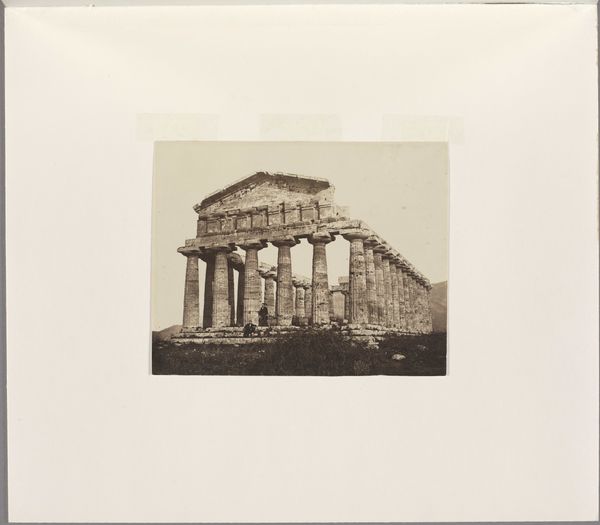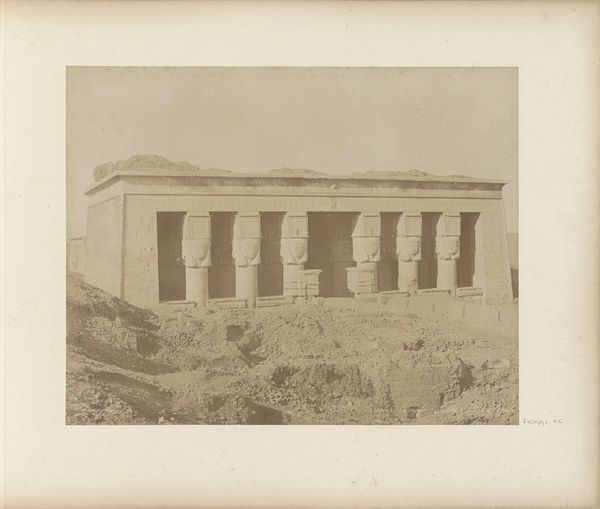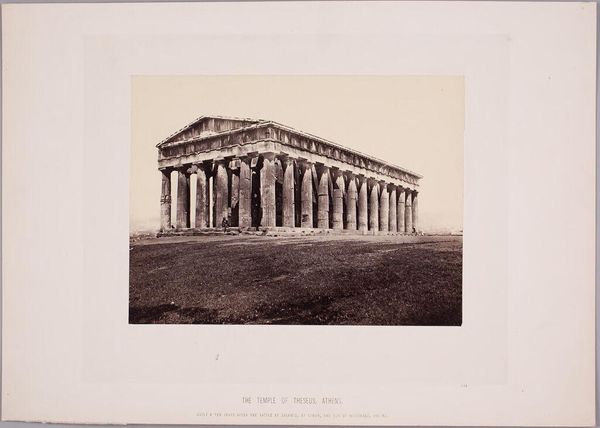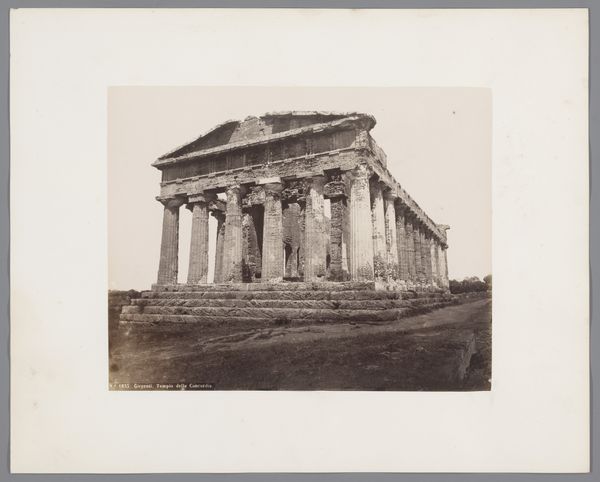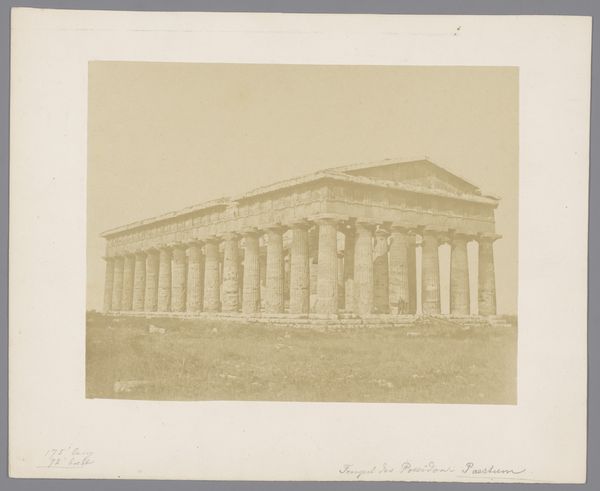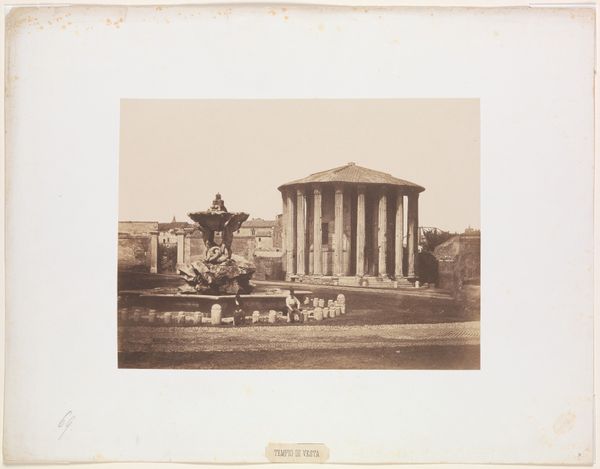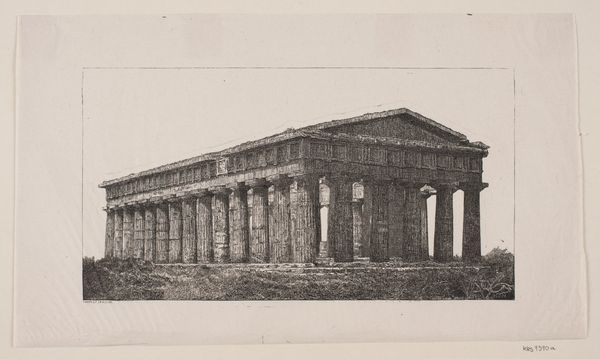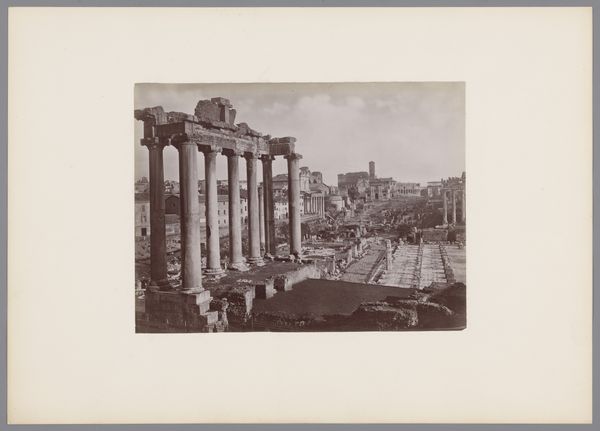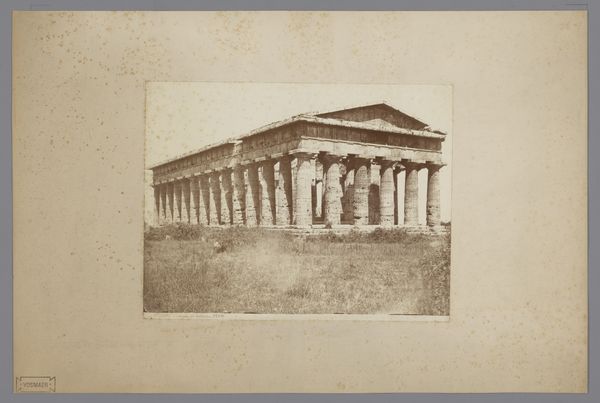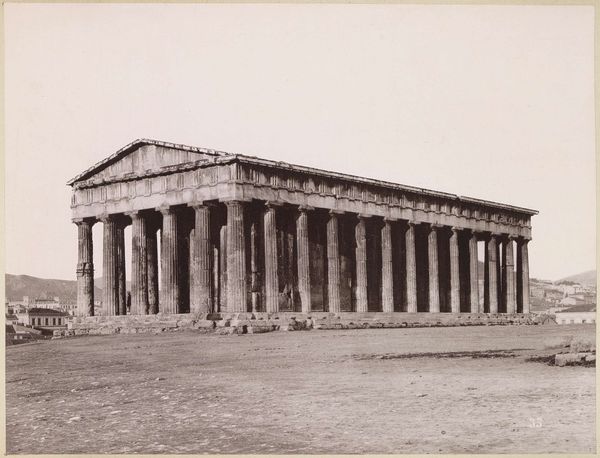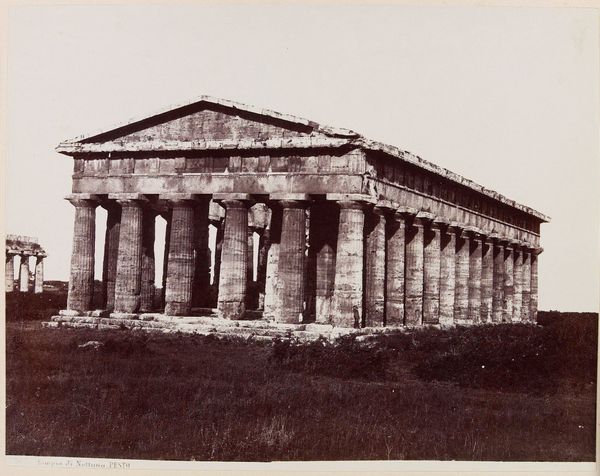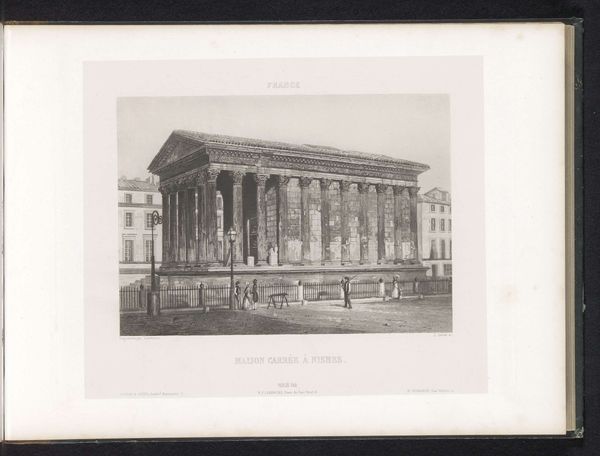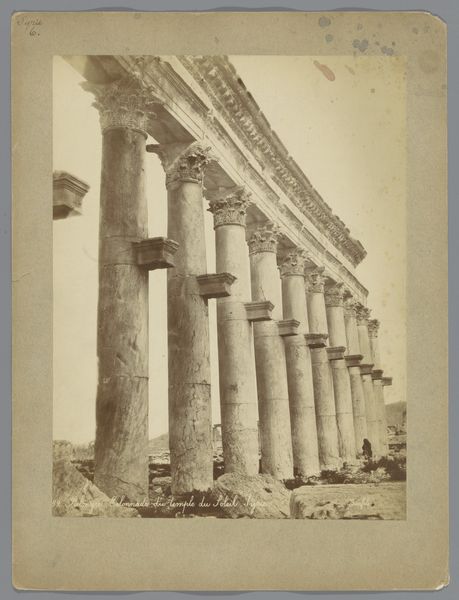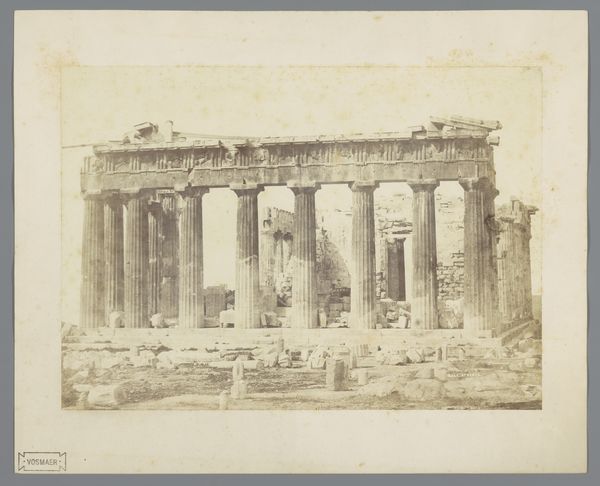
print, photography, gelatin-silver-print, architecture
# print
#
greek-and-roman-art
#
landscape
#
photography
#
ancient-mediterranean
#
gelatin-silver-print
#
architecture
#
realism
Copyright: Public domain
This print was made by Roberto Rive, who was active in Naples in the mid-19th century. It's an albumen silver print, a process which involves coating paper with egg white to create a glossy surface. The paper is then treated with a silver nitrate solution, making it sensitive to light. This process, requiring both technical skill and artistic vision, allowed photographers like Rive to document ancient structures. The image captures the Temple of Ceres at Paestum in Italy, a lasting symbol of classical architecture. The columns and entablature are rendered in exquisite detail. The albumen silver print process, while innovative, was labor-intensive. It reflects the burgeoning industrial processes of the 19th century, where new technologies transformed artistic practices. Rive’s photograph is not merely a record of a classical temple, but also a testament to the evolving relationship between art, labor, and technology. It encourages us to consider photography as both a craft and a form of art, deeply rooted in its material processes.
Comments
No comments
Be the first to comment and join the conversation on the ultimate creative platform.
